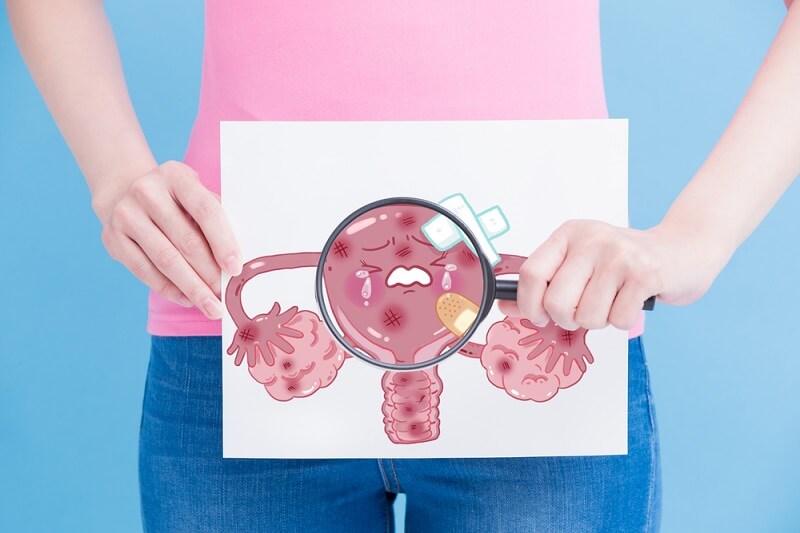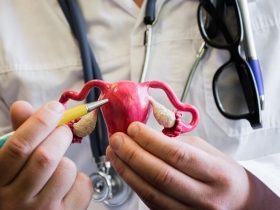What is primary ovarian insufficiency and how does it impact fertility?
When you are struggling with infertility there are a myriad of causes that could be preventing you from conceiving. While you shouldn’t jump to conclusions or self-diagnose yourself with some type of condition, it is good to be informed about conditions that do impact your fertility.

What is primary ovarian insufficiency and what causes it?
This condition happens when a woman’s ovaries are not functioning properly when the woman is below the age of 40. This condition occurs when the ovaries are not producing the normal amount of estrogen and releasing eggs irregularly. Primary ovarian insufficiency is confused with premature menopause, but they are not the same conditions. Primary ovarian insufficiency can lead to infertility.
There are a few known causes of primary ovarian insufficiency. These causes include:
- Chromosome changes and some genetic orders are often paired with primary ovarian insufficiency.
- Toxins can also cause ovarian insufficiency. Chemo patients may experience ovarian insufficiency due to the toxins from chemo. Cigarette smoke, some chemicals, and pesticides can also cause this condition.
- Autoimmune diseases on rare occasions can cause an immune response that causes ovarian insufficiency.
- Unfortunately, the cause of ovarian insufficiency is often unclear. Even with testing, it is hard to discover the cause of this condition. [1]
What are the symptoms of primary ovarian insufficiency and how is it diagnosed?
Many women with primary ovarian insufficiency may not realize there is an issue until they are trying to get pregnant and are not able to. Other women do feel specific symptoms that lead them to get the opinion of a healthcare professional. Some of these symptoms include:
- Hot flashes and night sweating.
- Feeling irritable and not able to concentrate.
- Having a lower sex drive and experiencing pain or discomfort during sex.
- Experiencing vaginal dryness.
If you are experiencing any of these symptoms, seeing a healthcare professional is a good idea. To diagnose primary ovarian insufficiency your doctor may do a few different tests and exams. They will ask about your family history of primary ovarian insufficiency. A physical exam will be conducted to ensure that no other condition is causing these symptoms. You will most likely have your blood tested for hormone levels. A pelvic ultrasound may also be used to determine if your ovaries are enlarged. It is important to not jump to conclusions about your health. If you experience any of these symptoms you should see your doctor and have any test done that is recommended. [2]
Can primary ovarian insufficiency be treated?
Unfortunately, primary ovarian insufficiency cannot be reversed. There are treatment options to mitigate the symptoms. The goal of treatment is to manage your symptoms, lower the risk of osteoporosis and heart disease, and consider family planning.
The main treatment for primary ovarian insufficiency is hormone replacement therapy (HRT). When you have primary ovarian insufficiency your ovaries aren’t producing enough estrogen or other hormones. The lack of estrogen impacts your menstrual cycle, but it can also affect your brain, cardiovascular system, musculoskeletal system, metabolism, and many other areas of your body. HRT will replace your missing symptoms and improve your symptoms such as hot flashes, and irregular periods, and lower your risk for heart disease and osteoporosis. HRT can be administered in a few different ways including pills, cream, gel, skin patch, vaginal ring, or intrauterine device.
For those who have primary ovarian insufficiency and would like to conceive. IVF is a great option, and this combined with donor eggs leads to the most success for women with primary ovarian insufficiency. You will also need to take hormones to prepare for pregnancy. There is no guarantee that this will be successful, but it is the best option for those with primary ovarian insufficiency. This is an extremely difficult condition and if you have this condition it is important to find support through your friends, family, and health professionals and seek therapy. Support is necessary to navigate this condition. Your mental and physical health and well-being is the most important and should always be your top priority. [3]
Sources:
2 https://medlineplus.gov/primaryovarianinsufficiency.html
3 https://www.healthline.com/health/womens-health/primary-ovarian-insufficiency-treatment#treatments






